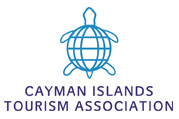Protecting and Preserving Paradise
The Caribbean is an incredibly bountiful, culturally diverse part of the world—a string of islands, large and small, each ringed by beautiful beaches which, to many visitors, constitute paradise on earth. For these reasons and more, the Caribbean is also the most tourism-dependent region on the planet, with more than 50 million people, mostly U.S. citizens, visiting each year. But the various types of tourism there, from small- to large-scale, have caused a range of environmental and social problems.
This past hurricane season, caused in part by climate change, was a prime example. Over a dozen island nations were severely damaged by hurricanes Irma and Maria, and, in some cases, it will take communities years to fully recover. The question is: Will they rebuild in ways that facilitate long-term stability, or will the future storms put them, and those which survived this past hurricane season intact, in yet another precarious position?
The Center for Responsible Travel (CREST)—a leader in sustainability research, standards, and field work—offers multiple answers in four books recently co-published with Business Expert Press. Individually, they focus on specific tourism activities and their impacts on the Caribbean and offer ways in which the tourism industry can soften, rather than exacerbate, climate-change impacts. Collectively, they cover every imaginable aspect of coastal and marine tourism in the region. Most importantly, the 60-plus experts who collaborated with CREST on the books provide readers with innumerable best practices.
These books are intended, primarily, for college and post-graduate courses focused on the study of responsible travel. But among others who’d find them enlightening and useful are travel-industry professionals, policy-makers, government officials and anyone interested in helping to protect and preserve not only paradise, but destinations in similar climates all over the world.
- Coastal Tourism, Sustainability, and Climate Change in the Caribbean, Volumes I & II
Early in 2017, CREST released two volumes with this title. Volume I focuses on hotels and beaches, Volume II on supporting activities, including golf, sustainable food sourcing, and airlines and airports. The volumes contain essays and case studies by 33 experts looking at how various tourism sectors contribute to and are impacted by climate change. The twin volumes also highlight innovative tourism businesses providing solutions to addressing climate change. The books’ editor is Martha Honey, CREST’s executive director, who was assisted by the nonprofit’s managing director, Samantha Hogenson.
- Marine Tourism, Climate Change, and Resilience in the Caribbean, Volumes I & II
As the island and coastal nations of the Caribbean respond to and prepare for the effects of climate change, tourism has the potential to either exacerbate or provide solutions for those impacts. In the second half of 2017, CREST released two volumes with the title above. Volume I, edited by Martha Honey, is focused on ocean health, fisheries, and marine protected areas. Volume II covers recreation, yachts, and cruise ships. The latter was edited by CREST Academic Affiliate Dr. Kreg Ettenger, of the University of Maine, with assistance from Samantha Hogenson. The books feature essays and case studies by 30 authors.
Special Discount to CHTA Members
Purchase one or all books at a special CHTA discount. Click here to access Exclusive CHTA Member Benefits.

































